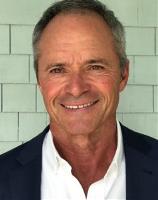
Born: August 21, 1957, in Lumberton, N.C.
Education: I graduated from Rowland High School in Rowland, N.C., in 1975. After high school, I started a landscaping and greenhouse business in Chapel Hill, N.C.
Family: I married Vicki Allred in April 1983. We have two adult daughters—Megan and Kelly—and four grandchildren.
Q: When and how did you enter the papermaking/recycling industry?
A: I began my current career in 1982 by accident. At the time, I had the landscaping and greenhouse business in North Carolina. While visiting my parents in Georgia during an unusually cold winter in North Carolina, I decided to get a part-time job at the local paper mill. After a few months the company offered me a position to open a recycling plant in Florida. I accepted without really knowing what a paper recycling plant was, so I sold my business in North Carolina and moved to Florida for the opportunity. Although I didn’t realize it at the time, we were building an infrastructure for fiber collection, especially ONP, that didn’t exist. Curbside recycling didn’t exist at that time as demand for many of the recoverable grades didn’t exist.
Q: What was it about the industry that prompted you to build a career in it?
A: I enjoyed the entrepreneurial aspect and autonomy of the work. Also, the variability of the business attracted me. One day I’d operate equipment in a plant; the next day I’d meet with municipalities or corporations to talk about recycling. I enjoyed having the freedom to do different tasks every day, which echoed my upbringing when I worked summers on a farm and sawmill back in North Carolina.
Q: What have been your most rewarding personal and professional achievements?
A: Personally, I’m most proud of my family. Professionally, I’m proud of building teams that are motivated, successful, and able to develop people to have successful careers in the industry.
Q: What are you passionate about?
A: I’m passionate about sustainable businesses, which means those that have good economic models along with doing good for the environment.
Q: Tell us something about you that would surprise people.
A: Most will probably be surprised I don’t have a college degree.
Q: If you could improve anything about yourself, what would it be?
A: I’d like to be more patient and disciplined to be the best version of myself.
Q: What do you like to do in your free time?
A: I’m a musician and enjoy playing at neighborhood and family gatherings. I also enjoy competitive golf, staying fit, and spending time around the water, especially the ocean even though I live on a lake.
Q: When and why did your company decide to join ReMA and the PSI Chapter?
A: PSI has been such an integral part of our industry. I can’t remember not being associated with the organization. My first recollection of its role was the paper-grade definitions or “standards” 25 to 30 years ago. Also, as we began sharing safety best practices across the industry, ReMA played a pivotal role by serving as a clearinghouse or central point for information.
Q: Have you held any volunteer leadership positions within PSI?
A: While I haven’t served in a PSI leadership position, our company has always had good representation on various PSI committees. In my company leadership role, I’ve enabled team members to serve in the PSI Chapter over the past 20 years. I believe it’s important to have a voice within the industry and be represented, and PSI involvement has presented good development opportunities for my colleagues.
Q: What are the major challenges facing your company and the overall papermaking/recycling industry today?
A: China’s recent decisions regarding fiber imports have created a major reset of recycling markets, which could take years to balance. A big challenge we have is educating the public about new quality standards for recycling along with the potential cost to sustain recycling programs. Attracting talent to both recycling and papermaking is a challenge, but it’s critical as the industry’s success and future will depend on bright minds keeping pace in an ever-changing world.